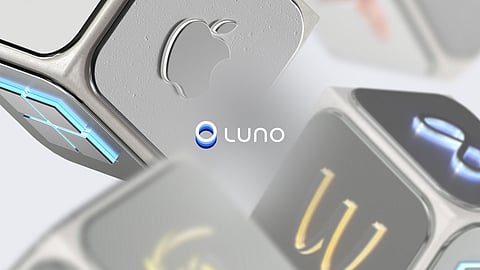Tokenised stocks will reshape investment in South Africa
*Luno (Pty) Ltd is an authorised financial services provider (FSP No. 53314), and registered credit provider (NCRCP22123). This content is for informational purposes only and does not constitute financial, tax, legal, or investment advice. It is not a call to trade. For personalized guidance, please consult a qualified financial advisor before making any financial decisions.
By Christo de Wit, Country Manager for Luno South Africa
Tokenised stocks launched globally in May this year and are now available to South Africans through Luno, starting with 60+ US stocks and ETFs on the investment platform. This gives both lay and professional investors instant access to some of the largest companies in the world, including Apple, Meta, Alphabet, Amazon, and Tesla.
Before the internet, the only way to trade stocks was to place an order with your stockbroker, who gave instructions to traders on a physical trading floor, where deals were struck by shouting and gesticulating across the chaos. Share certificates were couriered between buyers and sellers. The process of buying international shares required huge effort, involving chains of brokers, banks, and currency controls. This multi-step process created immense friction. It made timely execution difficult and frequent trading a practical impossibility for anyone but dedicated professionals. It wasn’t simply an inconvenience, but a fundamental barrier that limited participation for most.
In fact, it was only in 1999 that the Johannesburg Stock Exchange (JSE) decided it was time to “dematerialise” physical paper stock certificates for digital ones, reducing settlement times from two weeks to five days. Abroad, the Nasdaq was the world’s first fully digitised stock market, eliminating the need for a physical trading floor, a whole 28 years before the JSE went digital. But it wasn’t until the internet came along that online investment platforms could make these types of investments directly available to everyday investors.
Market demand for investing in stocks has been on the increase. Studies from abroad, such as research from the JPMorgan Chase Institute, show that the monthly share of individuals under the age of 40 transferring funds to investment accounts more than tripled over the last decade. This trend is also reflected in the 2022 Federal Reserve Survey of Consumer Finances (SCF), which found that direct stock ownership rose from 15% of families in 2019 to 21% in 2022, marking the largest increase on record since the survey began in 1989. Overall stock holdings by families also increased significantly during this period.
The picture in South Africa is more static. Research by the South African Reserve Bank shows a fairly constant ratio of where households invested their money over the past decade. But there has been a marginal but notable increase in the share of equity investments from 2020 onwards. According to the household survey, the share of equity and investment fund shares relative to total assets increased from 20.8% to 25.7% over the same period. In short, there seems to be a growing interest in investing in the stock market.
The case for tokenised stocks
Cryptocurrency is now firmly entrenched in traditional finance. It represents an amplified and accelerated version of trends already seen in traditional finance: a focus on user-friendly investment experiences, the targeting of a broader range of investors, and a drive to open up finance to anyone who wants a piece of it. In other words, democratising investment. It has made accessibility the expectation, rather than the exception.
It’s understandable, therefore, that a global, digital stock market built on crypto technology is the next step in that evolution.
Imagine wanting to buy Apple stock but needing more than R3,000, having to wait days for settlement, and being able to trade only during specific hours. This is what tokenisation solves. Now it's as simple as buying crypto through an app: instant, affordable, and accessible from your phone.
Where South African investors have long faced barriers of minimum investments, currency controls, and settlement delays, tokenised stocks eliminate these friction points entirely. You can buy fractional shares worth R20, invest outside of trading hours, and settle transactions in seconds rather than days.
It’s taken about a decade for the financial system to latch onto the potential of blockchain technology, and a big part of that drive is everything a decentralised, automated ledger enables. What blockchains excel at is recording and clearing transactions without requiring intermediaries to verify that value has been exchanged. JP Morgan, BlackRock, and some of the world’s biggest financial institutions have realised this potential and have started tokenising US bonds and US dollars on blockchain networks. The logical next step is tokenised stocks.
If cryptocurrency has been accused of being a technology in search of a solution, it seems to have found one that every person can relate to: democratising access to global investing opportunities.

